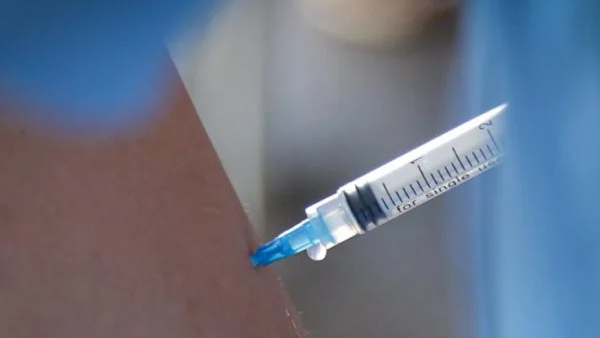For infectious diseases, the decision of the state of São Paulo to provide a booster dose of the Covid vaccine has no scientific justification. This was announced Thursday (2) and was due to the emergence of the omicron variant and the approaching end of the year festivities.
Before that, residents of São Paulo must wait five months after the second dose to receive the booster of the fortifying agent. Now the wait has been reduced to four months.
The timetable for starting the application varies from one municipality to another. In the city of São Paulo, the new measure will take effect from Friday (3) – the immunizing agent from Pfizer will be used, regardless of which product was applied in the base vaccine schedule.
“There is no evidence of this being done in younger individuals,” says Renato Kfoury, a pediatrician and director of SBIm (the Brazilian Society for Immunization).
“We have data that shows loss of protection over 50 years — and over time. This loss is faster by vaccine and age, so Coronavac loses protection first than AstraZeneca, so how do older adults lose first,” he explains.
Kfoury also claims that data on the loss of protection against coronavirus for people under 50 is lacking in Brazil.
However, the doctor assures that taking the drug even at a younger age and in the shortest possible time should not harm people. “Everyone will need a booster, but in this shorter period I don’t see any benefit. It made boosting with a five-month interval, for the benefit of those who need it most, a better idea,” he says.
“The immunization program consists of strategies and recommendations that do not change all the time and with evidence. At the Ministry of Health, the calculations we have made is that by the end of the year we will provide a booster dose to everyone over 50 who is five months old after the second dose.”
As for Omicron, Kfoury says there is no evidence, at least for now, that the new alternative requires a change in the vaccination schedule.
“I don’t think it’s a situation that will bring benefits, it just creates confusion. People might ask themselves ‘Why is São Paulo doing this?'” “.it seems they always want to create a different program than the rest of the country.”
This Thursday, following the announcement by the government of João Doria (PSDB), members of the Ministry of Health reported that the folder currently does not intend to recommend a reduction in the dose range from five to four months. So far, these file members say, there are no proven benefits for this reduction.
In informing the new calendar, the Sao Paulo government said it had taken “into account that São Paulo is a gateway, through ports and airports, to people from all over the world, and Brazil is not yet obligated to provide proof of a complete vaccination schedule for travelers.”
Raquel Stocchi, a professor at Unicamp (State University of Campinas) and a consultant at the SBI (Brazilian Society of Infectology), agrees with Kfouri that there is a lack of evidence to expect a boost.
For her, scientists have already noted that people up to 50 years of age maintain good protection for up to five months, which begins to decline after 60 and 70 years. “Flickering another month feels like a waste of a vaccine,” she says.
According to Stucci, it would be better for the state to donate doses to countries that need them most.
“Another position that the São Paulo state government should take is to look for those who did not take the first dose and those who missed the second dose. Efforts should be focused on that and not continue to change the policy,” he adds.

“Wannabe internet buff. Future teen idol. Hardcore zombie guru. Gamer. Avid creator. Entrepreneur. Bacon ninja.”

